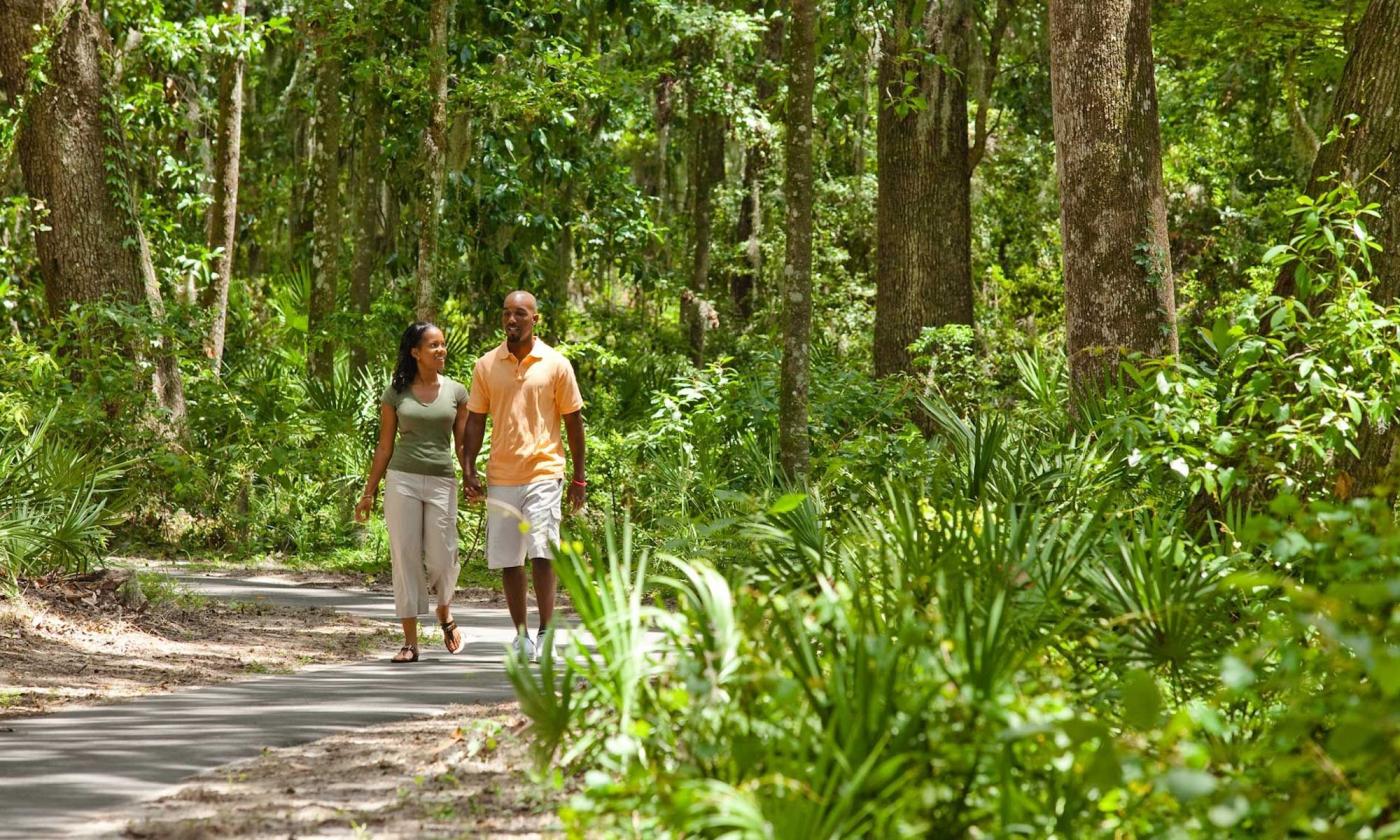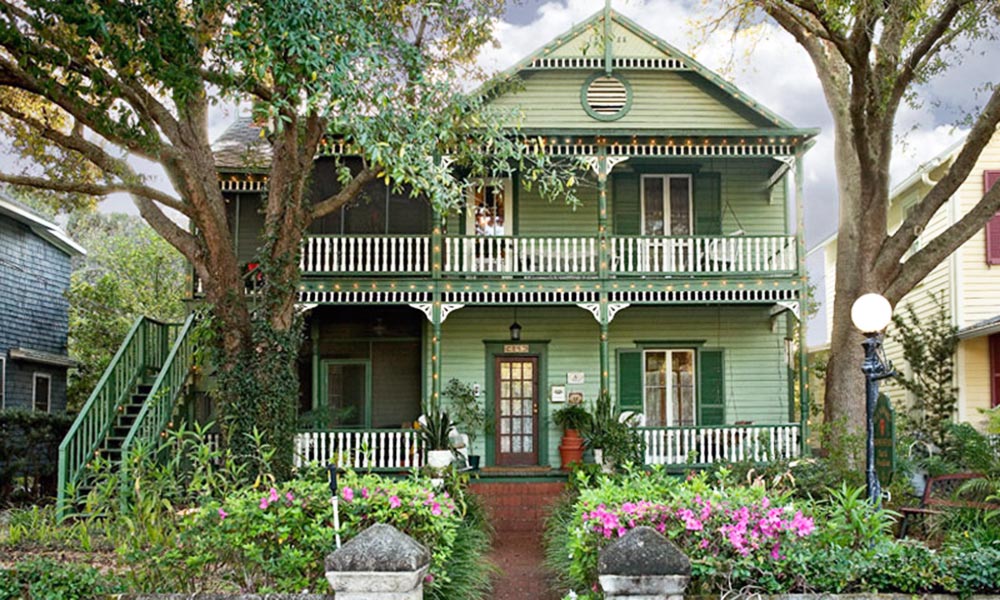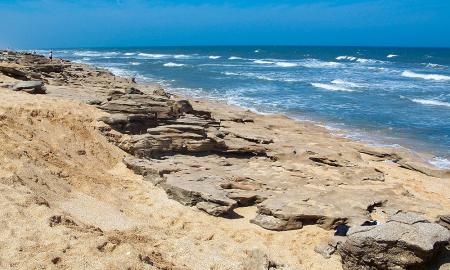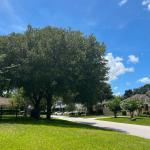
11 Things to Know Before Moving Here
Here are 11 must-knows to help you settle into your new life.
Relocating to the nation’s oldest city?
You’re in for a treat. St. Augustine combines centuries of history with modern charm — from Spanish forts and bricked streets to beach sunsets and local seafood joints. But before you settle into coastal life, here are ten essential things to know that’ll make your move smoother.
11 Things to Know Before Moving

1. You Have 10 Days to Register Your Car
Once you become a Florida resident, you’re required to register your vehicle within 10 days. To do this, head to the St. Johns County Tax Collector’s Office (you'll also register your boat here) with the following documents:
- Out-of-state title (or current registration if the title is held by a lienholder)
- Proof of Florida insurance from a provider licensed to operate in Florida
- Valid identification (such as a Florida driver’s license or other accepted ID)
- Proof of Florida residency (like a lease agreement or utility bill)
- Completed Application for Certificate of Title With/Without Registration (Form HSMV 82040)
- Vehicle Identification Number (VIN) verification (required for vehicles previously titled out-of-state)
Find out more — Florida Department of Highway Safety and Motor Vehicles.
2. Update Your Driver’s License Within 30 Days
Unlike other states, Florida separates the DMV (driver licensing) from vehicle registration, and both are handled at your local tax collector’s office. Also, your Social Security card and two proofs of address are required — no exceptions. Appointments help a lot, and each office might offer slightly different services, so check their site first before walking in.
St. Johns County Tax Collector’s
Main Office – St. Augustine
4030 Lewis Speedway
St. Augustine, FL 32084
(904) 209-2250
Monday - Friday, 8:30 a.m. - 5:00 p.m.Dupont Center
6658 US-1 South
St. Augustine, FL 32086
(904) 209-2250
Monday - Friday, 8:30 a.m. - 4:30 p.m.Julington Creek Branch
725 Flora Branch Blvd
St. Johns, FL 32259
Phone: (904) 209-2250
Monday - Friday, 8:30 a.m. - 4:30 p.m.Ponte Vedra Branch
151 Sawgrass Corners Dr, Suite 100
Ponte Vedra Beach, FL 32082
(904) 209-2250
Monday - Friday, 8:30 a.m. - 4:30 p.m.

3. You May Be Eligible for the Homestead Exemption
If you’re buying a home in St. Augustine and making it your primary residence, apply for the Florida Homestead Exemption. This can lower your property taxes and provides additional legal protections. You must apply by March 1st of the year you plan to claim the exemption.
Learn more about the Homestead Exemption

4. Prepare for Hurricane Season
St. Augustine's coastal beauty comes with risks — namely, flooding and hurricanes. While these disasters occur less frequently here than in most of Florida's other popular cities, they can and do happen. Before buying or renting, check your flood zone. Be sure to ask your agent about windstorm coverage, named storm deductibles, and whether you need a flood insurance policy. Even if you're not in a high-risk flood zone, it's worth considering.
Hurricane season runs from June 1 to November 30, and it's important to plan ahead. Sign up for St. Johns County emergency alerts, locate your evacuation zone, and keep a hurricane kit with essentials. Local stores often sell out of supplies quickly, so it’s smart to prepare early in the season.
Download the St. Johns County Hurricane Preparedness Guide
Download a Disaster Supply Kit Checklist

5. Fleas Happen All Year Long
Thanks to the warm climate, fleas, ticks, and mosquitoes never really go away in Florida. If you’re bringing pets, make sure they’re on year-round flea and heartworm prevention. The same goes for home defense — keep up with pest control because roaches (a.k.a. palmetto bugs) are considered Florida roommates if you’re not proactive.

6. The Cost of Living Is Manageable — But Climbing
While still more affordable than places like Miami or Tampa, housing costs in St. Augustine are on the rise, especially near the beach or in historic neighborhoods. Be sure to compare average rents or home prices in areas like North City, Vilano Beach, or West Augustine. Flood insurance and HOA fees may also factor into your budget.
7. St. Johns County Has Excellent Schools

If you’re moving with kids, you’re in luck — St. Johns County School District is consistently ranked as one of the best in Florida. From A-rated public schools to respected charter and private options, education is a big draw for families relocating here.
Find out more — All St. Johns County Schools.
8. There’s No State Income Tax — But Know the Trade-offs
Florida doesn’t charge state income tax, which can be a major plus for working professionals and retirees. However, sales tax and property taxes vary by location. And while you save in one area, you might pay a bit more for homeowners insurance, flood coverage, or car insurance, depending on your situation.

9. Voting Boundaries Can Be Confusing
Just because you live in St. Augustine doesn't always mean you're in the City of St. Augustine. For example, Vilano Beach, St. Augustine Shores, and parts of West St. Augustine fall outside city limits — which means you can’t vote for mayor or city commissioners if you're not technically in the city. You’ll still vote in county elections, but it's worth checking your precinct and understanding your district lines after you register.
Find out more — Voting in St. Johns County
10. Job Opportunities Vary by Industry
Tourism, education, and healthcare are the largest employers in St. Augustine, though remote workers and small business owners thrive here, too. If you work in tech, real estate, marketing, or trades, you’ll find growing opportunities — especially as Jacksonville’s metro influence expands southward into St. Johns County.

11. Learn Local Parking Tricks and Perks
Living in St. Augustine means navigating tourist season traffic and knowing when to avoid downtown. As a resident, you’ll want to take advantage of parking discounts for residents. Locals also get reduced fees for beach driving passes and annual park memberships.
Tip: Weekends can be busy downtown — but weekday mornings are a local’s paradise. Every year in September, you'll be able to take advantage of exclusive discounts for locals to popular attractions, lodging, and restaurants.
Final Thoughts

Moving to St. Augustine means trading snow shovels for sand between your toes and adding centuries of history to your daily life. Get the logistics sorted early — like your license, insurance, and homestead exemption — and you’ll free yourself up to explore the hidden gems, scenic parks, and beachy breezes that make our city so special.
Check out these articles for locals
- Golfing in the Ancient City
- 19 Ways You Know You Live in St. Augustine
- Why Your Dog Wants to Move to St. Augustine
- Fresh Finds at Local Farmers Markets
- Moving to St. Augustine
Ready to make the move?
Check out our full Relocation Guide for tips, local services, and everything you need to start your new life in the Oldest City.
















